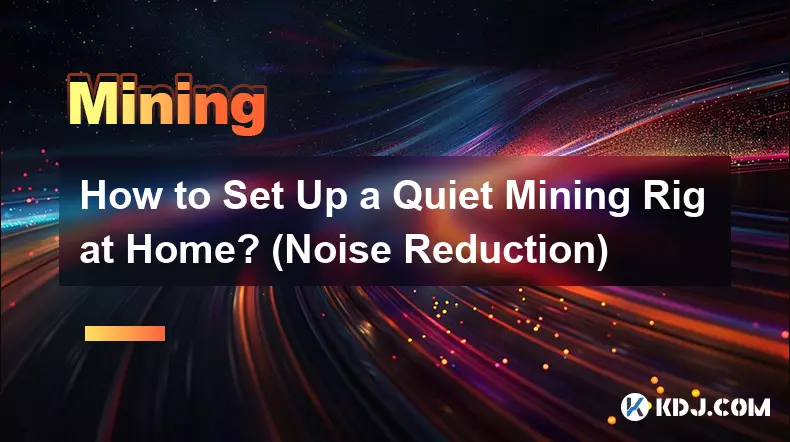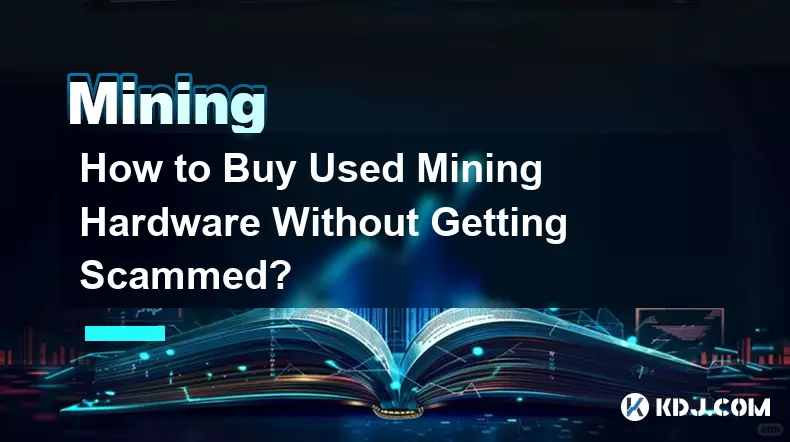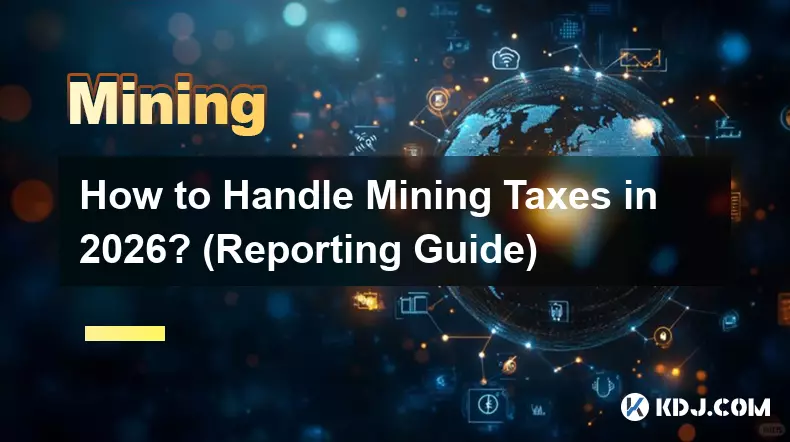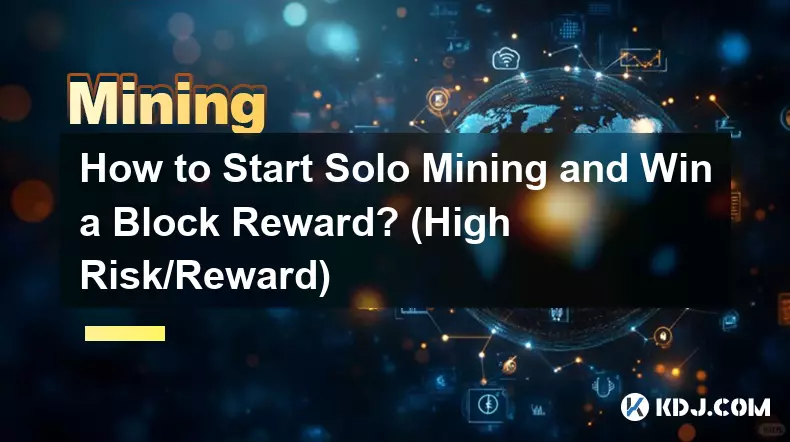-
 bitcoin
bitcoin $87959.907984 USD
1.34% -
 ethereum
ethereum $2920.497338 USD
3.04% -
 tether
tether $0.999775 USD
0.00% -
 xrp
xrp $2.237324 USD
8.12% -
 bnb
bnb $860.243768 USD
0.90% -
 solana
solana $138.089498 USD
5.43% -
 usd-coin
usd-coin $0.999807 USD
0.01% -
 tron
tron $0.272801 USD
-1.53% -
 dogecoin
dogecoin $0.150904 USD
2.96% -
 cardano
cardano $0.421635 USD
1.97% -
 hyperliquid
hyperliquid $32.152445 USD
2.23% -
 bitcoin-cash
bitcoin-cash $533.301069 USD
-1.94% -
 chainlink
chainlink $12.953417 USD
2.68% -
 unus-sed-leo
unus-sed-leo $9.535951 USD
0.73% -
 zcash
zcash $521.483386 USD
-2.87%
How to play Litecoin mining
By understanding the basics of Litecoin mining, choosing suitable hardware, joining a mining pool, and optimizing mining operations, individuals can participate in the decentralized verification and securing of the Litecoin blockchain.
Jan 12, 2025 at 08:08 am

- Understand Litecoin mining basics
- Choose suitable mining hardware
- Join a mining pool
- Set up mining software
- Monitor and optimize mining operations
Litecoin mining involves verifying Litecoin transactions and adding them to the blockchain, earning rewards in the form of LTC coins. Specialized hardware solves complex mathematical equations to secure the network. Litecoin mining is decentralized, meaning anyone can participate with appropriate equipment.
2. Choose Suitable Mining HardwareThe primary consideration is whether to use a graphics card (GPU) or an application-specific integrated circuit (ASIC) miner. GPUs offer a lower upfront investment but are less efficient. ASIC miners are costly but provide higher efficiency, making them more profitable in the long run. Litecoin mining uses the Scrypt algorithm, and several compatible ASIC miners are available in the market.
3. Join a Mining PoolMining solo requires significant computational power and is less profitable for most individuals. Joining a mining pool combines resources with other miners, increasing the chances of finding blocks and earning rewards. Each pool has its own rules, conditions, and fees that should be carefully evaluated before joining.
4. Set Up Mining SoftwareOnce you have the hardware and have joined a pool, you need to install mining software. This software connects you to the pool and manages the mining process. Several open-source and proprietary mining software are available for Litecoin mining, such as CGminer, BFGMiner, and EasyMiner.
5. Monitor and Optimize Mining OperationsRegularly monitor your mining setup, including hardware temperature, power consumption, and hash rate. High temperatures can reduce hardware lifespan or cause shutdowns. Optimize your mining settings and environment to maximize efficiency and minimize energy costs. Consider factors like cooling systems, overclocking, and undervolting for improved performance.
FAQsQ1: Is Litecoin mining profitable?A1: The profitability of Litecoin mining depends on several factors, including the hardware used, electricity costs, and the current Litecoin price. With efficient ASIC miners and low electricity costs, it can be profitable; however, it's important to do your due diligence and consider all expenses.
Q2: What is the best Litecoin mining hardware?A2: The best Litecoin mining hardware for individuals is typically ASIC miners. They provide higher efficiency and hash rates compared to GPUs. Look for miners with low power consumption and advanced cooling systems for optimal performance.
Q3: How much does it cost to start Litecoin mining?A3: The cost of starting Litecoin mining depends on the mining hardware you choose. GPU mining is less expensive to start, but ASIC miners offer higher profitability in the long run. The price of hardware can vary significantly based on specifications and the latest market conditions.
Disclaimer:info@kdj.com
The information provided is not trading advice. kdj.com does not assume any responsibility for any investments made based on the information provided in this article. Cryptocurrencies are highly volatile and it is highly recommended that you invest with caution after thorough research!
If you believe that the content used on this website infringes your copyright, please contact us immediately (info@kdj.com) and we will delete it promptly.
- No More Pocket Bricks: Tracker Cards Offer the Sleek AirTag Wallet Fix Solution
- 2026-02-01 22:10:02
- Trump's Northern Blast: How Canada Remarks Jolted WLFI Price and Shook Crypto Holders
- 2026-02-01 21:55:01
- Bitcoin Navigates Bear Market Blues Amidst a Weakening Dollar: A Shifting Crypto Landscape
- 2026-02-01 22:10:02
- Dogecoin's Rollercoaster: Navigating Moonshot Dreams Amidst Memecoin Risks
- 2026-02-01 22:05:01
- Bitcoin Price Drops: Key Factors Fueling the Sell-Off and What Comes Next
- 2026-02-01 22:05:01
- Bitcoin and Crypto Market Experience Wild Weekend Crash: What You Need to Know
- 2026-02-01 22:00:01
Related knowledge

How to Earn Passive Income with DePIN Mining? (New Trend 2026)
Feb 01,2026 at 12:40pm
Understanding DePIN Mining Mechanics1. DePIN mining relies on real-world infrastructure participation rather than computational hashing. Users deploy ...

How to Set Up a Quiet Mining Rig at Home? (Noise Reduction)
Feb 01,2026 at 11:00pm
Acoustic Enclosure Design1. Use rigid, dense materials such as MDF or acoustic-grade plywood for the enclosure walls to block mid-to-high frequency no...

How to Mine Bitcoin on Mac (M1/M2/M3)? (Software Tutorial)
Feb 01,2026 at 07:19pm
Understanding Bitcoin Mining on Apple Silicon1. Bitcoin mining relies on solving cryptographic puzzles using computational power, and Apple’s M1, M2, ...

How to Buy Used Mining Hardware Without Getting Scammed?
Feb 01,2026 at 08:00pm
Research the Seller's Reputation Thoroughly1. Check archived listings and feedback on platforms like Bitcointalk forums, Mining Hardware subreddits, a...

How to Handle Mining Taxes in 2026? (Reporting Guide)
Feb 01,2026 at 01:39am
Tax Classification of Mining Rewards1. Cryptocurrency mining rewards are treated as ordinary income at the fair market value on the date of receipt. 2...

How to Start Solo Mining and Win a Block Reward? (High Risk/Reward)
Feb 01,2026 at 06:40am
Understanding Solo Mining Mechanics1. Solo mining means operating a full node and attempting to solve cryptographic puzzles independently without join...

How to Earn Passive Income with DePIN Mining? (New Trend 2026)
Feb 01,2026 at 12:40pm
Understanding DePIN Mining Mechanics1. DePIN mining relies on real-world infrastructure participation rather than computational hashing. Users deploy ...

How to Set Up a Quiet Mining Rig at Home? (Noise Reduction)
Feb 01,2026 at 11:00pm
Acoustic Enclosure Design1. Use rigid, dense materials such as MDF or acoustic-grade plywood for the enclosure walls to block mid-to-high frequency no...

How to Mine Bitcoin on Mac (M1/M2/M3)? (Software Tutorial)
Feb 01,2026 at 07:19pm
Understanding Bitcoin Mining on Apple Silicon1. Bitcoin mining relies on solving cryptographic puzzles using computational power, and Apple’s M1, M2, ...

How to Buy Used Mining Hardware Without Getting Scammed?
Feb 01,2026 at 08:00pm
Research the Seller's Reputation Thoroughly1. Check archived listings and feedback on platforms like Bitcointalk forums, Mining Hardware subreddits, a...

How to Handle Mining Taxes in 2026? (Reporting Guide)
Feb 01,2026 at 01:39am
Tax Classification of Mining Rewards1. Cryptocurrency mining rewards are treated as ordinary income at the fair market value on the date of receipt. 2...

How to Start Solo Mining and Win a Block Reward? (High Risk/Reward)
Feb 01,2026 at 06:40am
Understanding Solo Mining Mechanics1. Solo mining means operating a full node and attempting to solve cryptographic puzzles independently without join...
See all articles
























![[Audio stories] Streamer Became a Billionaire Overnight After Buying One Junk Coin [Audio stories] Streamer Became a Billionaire Overnight After Buying One Junk Coin](/uploads/2026/02/01/cryptocurrencies-news/videos/origin_697eaa9a495ed_image_500_375.webp)

















































